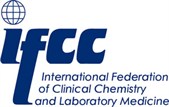5. Biochemical Monitoring of COVID-19 Patients
The essential role of clinical laboratories in this pandemic extends beyond etiological diagnosis of COVID-19. Biochemical monitoring of COVID-19 patients through in vitro diagnostic testing is critical for assessing disease severity and progression as well as monitoring therapeutic intervention. Several common in vitro diagnostic tests have been implicated in unfavorable COVID-19 progression, potentially providing important prognostic information. A recommended test list based on current literature is included below along with the major laboratory abnormalities associated with adult COVID-19 patients and their potential clinical indication. In addition to more common laboratory tests, new evidence suggests that patients with severe COVID-19 could be at risk for cytokine storm syndrome. Cytokine tests, particularly IL-6, should be used where possible to assess severe patients suspected of hyperinflammation.

Special considerations for pediatrics: Importantly, unlike adults, the laboratory profile in severe COVID-19 pediatric patients is not clear and does not appear to be consistent with SARS. A recent publication recommends clinicians monitor lymphocyte count, c-reactive protein, and procalcitonin to assess severe infection. IL-6 should also be investigated as a potential pediatric prognostic indicator (2). A preliminary description of pediatric U.S. COVID-19 cases was published by the CDC on April 10th, 2020. In line with data from China, the CDC reports that pediatric COVID-19 cases might be less severe when compared to adults and that children may experience different symptoms. Specifically, positive pediatric patients were reported to not always be associated with fever or cough as reported signs and symptoms. Additionally, although most cases reported among children to date have not been severe, the CDC recommends clinicians maintain a high index of suspicion for COVID-19 infection in children and monitor for progression of illness, particularly among infants and children with underlying conditions. Importantly, interpretation of pediatric laboratory tests based on known adult trends is not recommended due to lack of pediatric information and characteristics. Recent data also suggests a new phenomenon affecting previously asymptomatic children with SARS-CoV-2 infection manifesting as a hyperinflammatory syndrome with multiorgan involvement similar to Kawasaki disease shock syndrome. Further research into the pediatric manifestations of COVID-19 is essential.
Special considerations for pregnant women during COVID-19 pandemic: Researchers have reported potential vertical transmission of COVID-19 in China (19, 20). Thus, minimizing the risk transmission and viral exposure to pregnant women is incredibly important. Many labs have implemented modifications for the required Gestational Diabetes Mellitus screening, including:
- Guidance for maternal medicine in the evolving coronavirus (COVID-19) pandemic (Royal College of Obstetrics & Gynecologists, UK)
- Diagnostic Testing for Gestational diabetes mellitus (GDM) during the COVID 19 pandemic: Antenatal and postnatal testing advice (Australasian Diabetes in Pregnancy Society and the Australian Diabetes Society)
- Temporary Alternative Screening Strategy for Gestational Diabetes Screening during the COVID-19 Pandemic (Diabetes Canada Clinical Practice Guidelines Steering Committee and the Society of Obstetricians and Gynecologists of Canada)
Click here for the list of Key Publications on Biochemical Monitoring
|
Click on below titles and access the different sections.
Table of Contents:
4. Biosafety Guidelines for the Clinical Laboratory
5. Biochemical Monitoring of COVID-19 Patients
6. Other Educational Materials & Webinars
8. Vaccination
